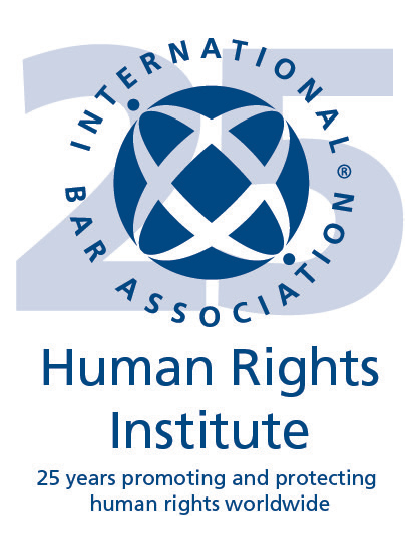As to Turkish criminal law, the maximum period of detention has already been completed as of the last review of detention, which was made on 13th Jan, 2020. Yet, the presiding judge decreed that detention would continue. In essence, as to the Turkish Criminal Law, detention time for detainees should not exceed 1,5 years. THE DECREE IS FOR THE CONTINUATION OF DETENTION OF EACH ONE OF THE DETAINEES, with the mere reasoning that “the alleged crime may change against them.”
Please note that the investigation started in 2016 and these defendants have been detained for more than 1,5 years now. That is an important violation I should mention for now.
I also would like to bring up another evidence for the violation of law regarding a Turkish court case, which I have explained in detail in my earlier e-mails and kindly ask you to monitor the proceedings of our case, because there are numerous ongoing violations of international human rights law, the criminal codes of Turkey and the Turkish Constitution.
The trial of 226 defendants, 167 of whom were detained, began on September 17, 2019. At the end of the first session, on December 13, 2019, Istanbul High Criminal Court No. 30. decided to release 91 defendants (including 3 lawyers) who have been detained for about one and a half years, and ruled to execute judicial control measures of “international travel ban” in accordance with CMK (Turkish Code of Criminal Procedure) article 109/3-a, and “ban to leave the house” (house arrest) in accordance with CMK 109/3-j.
As will be explained in detail below, the decision of house arrest in particular is unjustifiable, unmeasured and thus unlawful.
The Decision of House Arrest is “Unjustifiable”:
- In accordance with Turkish Constitution “Right to Receive a Justified Decision” (Constitution article36/1, 141/3);ECHR, “Right to a Fair Trial” (ECHR article 6/1); and CMK (article34/1),all judicial decisions should be written with a justification, in decisions of arrestment and judicial control measures in particular, “the right to justification” is especially important (CMK article 101/1, 109/1).
- However, the court’s recent decision is far from meeting the referred regulations of the Constitution, international conventions on fundamental rights and liberties, and other regulations of the Criminal Code.
- Within the context of ECHR, the right to receive a justified decision is a prominent right in terms of the principle of a fair administration of justice.[1]ECHR considers it a violation where there is “clear arbitrariness”, “inconsistency” or “exceeding the limits of reasonable interpretation in such a way as to undermine legal certainty”.[2]
- Besides, ECHR takes into consideration the reasons of continued detention.[3]On the other hand, according to ECHR, if the people under arrest ask for release under judicial control measures these should be taken into account by domestic courts and requests should not be systematically/automatically denied.[4]
- As a matter of fact, ECHR has found some practices in this respect in Turkey imperfect.[5]Similar problems and such violations as systematic/automatic denial of release pending trial are abundant in our case file.
- In the decision in question, house arrest is grounded on “the statements of an intervenor’s attorney that defendants will make an attempt to exert pressure on defendants who wanted to benefit from the effective remorse law, cross-defendants, plaintiffs and witnesses”. However the court did not concretize what this statement was. This judicial control measure therefore “lacks precision” according to ECHR article 6/1.[6]
- Even though it’s uncertain what the intervenor’s attorney’s statement was and to what extent that statement was true, assuming for a moment that it was true, the court didn’t discuss, concretize or elucidate how the defendants would exert pressure on “the cross-defendants, plaintiffs and witnesses”.
- The court’s methodology written down as “petitions of those defendants who wanted to benefit from the effective remorse law, cross-defendants, aggrieved parties, plaintiffs and witnesses; and the chance that defendants will erase, hide or tamper with the evidence” is a typical example of “stereotype reasoning” as stated in numerous ECHR judgments as well as in the most recent “Kavala Judgment”[7] that involves Turkey.
- Almost all of these 91 defendants are being charged merely with membership in a criminal enterprise; there are no plaintiffs against them. Therefore, the reasoning of the house arrest (i.e. exerting pressure on the plaintiffs) is groundless.
The Decision in Question is “Arbitrary”, Against the “Principle of Proportionality”, and is Therefore “Unmeasured” Within the Frame of Turkish Constitution Article 13 and CMK Article 109/1:
- Those 91 defendants have been detained for a long time, and even if they were found guilty of membership in a criminal enterprise (Turkish Criminal Code article 220) the criminal sentence would have been considered to be already executed because of the time they have been detained. In other words, they would be rightly released and would be able to use their fundamental rights and liberties at home and abroad. Since the maximum amount of time allowed by the law is over, they are released from jail but now they are confined to their residences in a similarly restrictive manner. Without question, within the frame of ECHR article 5 and ECHR Protocol No. 4,article 2, this decision of house arrest clearly violates the “Right to Liberty and Security.”
- With this decision, the court restricted the defendants’ liberty, which is guaranteed by Turkish Constitution and ECHR, and thus prevented them from generating an income by engaging in economic activities; and deprived them of their constitutional rights such as right to travel, education, property, belief, assembly, demonstration, march, etc., and thus violated the essence of the right.
- As explained above, if the court had sentenced the defendants to imprisonment on December 13, 2019, they would have been released and would be free now. And yet their liberty being restricted in such manner during trial is “ARBITRARY”.
- The decision in question is also “UNMEASURED”.
- In the context of the two elements of the principle of proportionality, “suitability” and “necessity”, the judicial measure of house arrestis not suitable for achieving the desired objective and the means used is not necessary.
- That is because in the case file, there is no sign (let alone any solid evidence) to support the claim that the defendants would exert pressure on anyone. If there was, the court would in all likelihood mention it in its decision. Since there is no such thing, so then the risk of pressure on the parties of the case does not exist in concrete terms.
- The third element of the principle of proportionality, “proportionality in the strict sense” means that the measure should be proportionate to the desired objective. The use of a certain means should not be disproportionate to achieving the objective. The means should not impose on the parties “unmeasured liabilities” and should not be “intolerable”.
- In accordance with the principle of proportionality, there should be a reasonable, acceptable proportion between the burden the measure puts on the individuals and the benefits the restriction would bring to the public in general.
- However, as explained above, following the mandatory release (after the legally maximum time limit of detention is reached)of the defendants, who have been detained unjustly for about one and a half years for an alleged crime, they are practically under arrest this time in their residences, and this is an “intolerable and unmeasured liability”.
CONCLUSION
The decision of Istanbul High Criminal Court No. 30. violates the following imperative provisions;
“Right to Receive a Justified Decision” (Turkish Constitution article36/1, 141/3);
“The Principle of Proportionality” (Turkish Constitutionarticle 13);
ECHR, “Right to a Fair Trial” (ECHRarticle 6/1);
“Right to Liberty and Security” (ECHRarticle. 5);
“Freedom of Movement” (ECHRProtocol No. 4, article 2);
“Written motives required at decisions” (CMK article 34/1)
And is therefore unjustifiable, arbitrary, unmeasured and unlawful.






